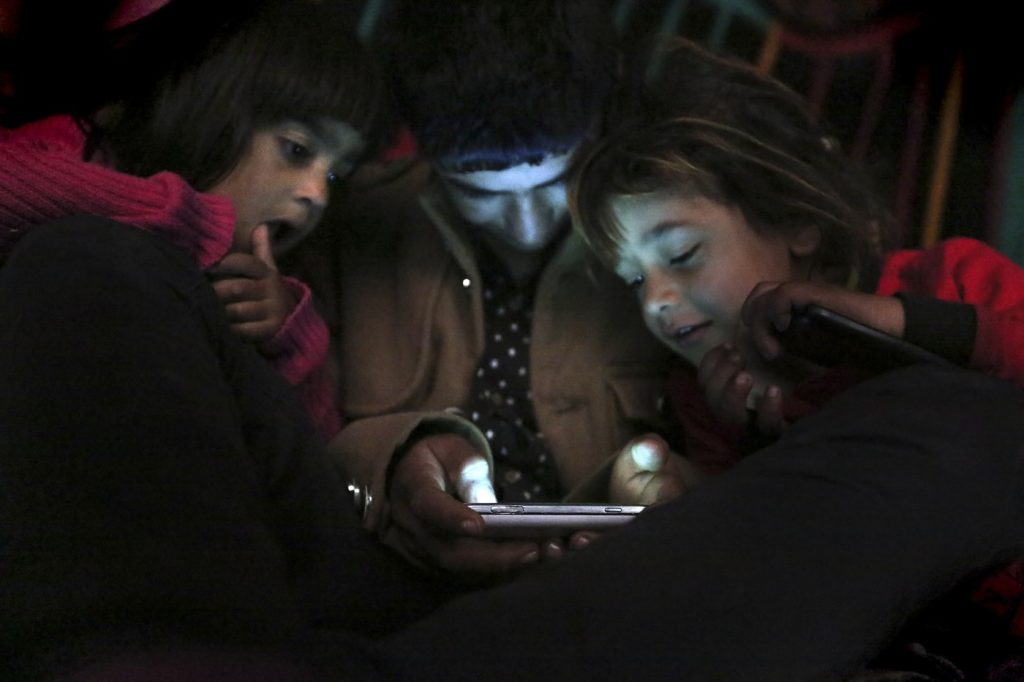DEL MAR, Calif. (AP) — Dick Tracy received an atom-powered two-way wrist radio in 1946, an invention that inspired Marty Cooper, a Chicago native who would change telecommunications history. As a leading engineer at Motorola during the 1970s, Cooper spearheaded the battle against AT&T to develop the portable phone. He rejected the idea of a car phone, believing that Americans would prefer a device that was an extension of themselves, allowing them to be reachable anywhere.
In 1973, Cooper made a historic phone call from a sidewalk in Manhattan, marking the triumph of his four-pound DynaTAC 8000X, the first mobile phone. This device has evolved into today's lightweight smartphones, which are held by nearly 4.6 billion people worldwide, accounting for about 60% of the global population that has mobile internet access, as reported by a global association of mobile network operators.
Smartphones, now omnipresent in our lives, have transformed from simple communication tools into powerful computers capable of performing trillions of calculations per second, a requirement for artificial intelligence. The traditional landlines have given way to sleek, multi-functional devices that constantly inundate users with notifications, emails, videos, and more, often leading to information overload. From his home in Del Mar, California, the 96-year-old inventor observes these changes, confidently stating that the technological revolution has only just begun.
Looking ahead, Cooper anticipates that mobile phones will evolve into thinking computers powered by human calories, minimizing reliance on batteries. He envisions a future where new mobile technologies can monitor health metrics in real-time, allowing for early detection of diseases. “People are going to die from old age and accidents, but they’re not going to die from disease. That’s a revolution in medicine,” he predicts.
Behavioral patterns surrounding the use of smartphones are shifting. Claude Fischer, a sociology professor at the University of California, Berkeley, notes that traditional phone calls have become a means of sharing intimate social ties. Nowadays, most prefer sending a message before making a phone call, with younger individuals citing texting as their primary communication method. Some, like Diana Cunningham, have adapted to using group texts to stay in touch with family, demonstrating a generational shift in communication preferences.
However, as the digital landscape evolves, many express concerns over its impact. Increasingly, online shopping and home deliveries have diminished serendipitous encounters with neighbors or local merchants, thus affecting social ties and connections. Kristen Burks, a circuit judge in Missouri, emphasizes the overwhelming nature of constant connectivity in today’s world. Educational professionals warn that excessive phone usage can impede children's ability to learn and socialize, leading to a movement advocating for reduced smartphone reliance among children.
Amidst these challenges, some states have implemented restrictions on cellphone usage in schools. Yet, Cooper argues that regulation is not the only solution; instead, he advocates for an integration of cellphones into educational environments as tools for accessing information.
Despite these advancements, global technological disparity remains evident. Nnaemeka Agbo, a Nigerian navigating life in Russia, shares how regular WhatsApp calls with his family provide emotional support amid harsh circumstances. In Nigeria, where internet access is only available to 37% of the population, mobile calls represent a vital lifeline for many. Others, like Shamsu Deen-Cole, who migrated from Sierra Leone to the United States in 1971, recount the drastically limited means of communication compared to today’s standards. Similarly, Tabane Cissé, who recently moved from Senegal to Spain, cherishes phone calls with his mother, illustrating how mobile technology fosters connections across vast distances.
Cooper sums it up succinctly: “There are more cell phones in the world today than there are people. Your life can be made infinitely more efficient just by virtue of being connected with everybody else in the world. But I have to tell you that this is only the beginning.”











